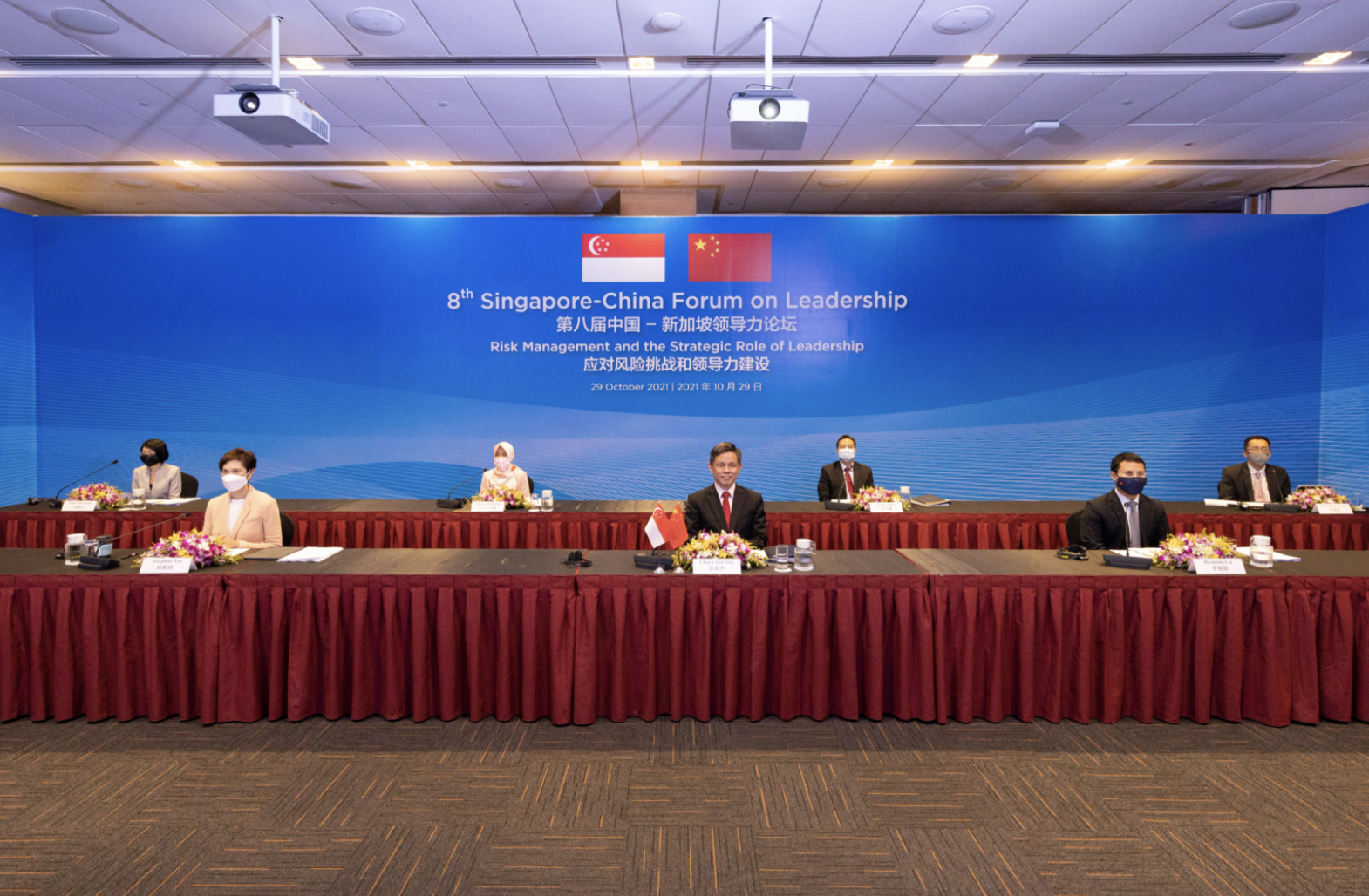Follow us on Telegram for the latest updates: https://t.me/mothershipsg
"Diversity" is needed in the leadership collective, along with a comprehensive range of experience and competencies to "manage risks and operate effectively" in a more complex and volatile world, Minister-in-charge of the Public Service Chan Chun Sing said on Friday, Oct. 29.
Fostering diversity
Speaking in his keynote speech at the 8th Singapore-China Forum on Leadership, Chan said "greater diversity" has to be fostered in Singapore's leadership collective to build resilience.

"We need to develop resilient leadership teams with a good mix of skills, traits, competencies, experiences, and personal networks," he said, adding that in the Singapore Public Service, leaders are exposed to different domains to "gain knowledge and build networks".
Chan, who's also Minister for Education, was sharing three focal areas for the country's leadership development, which is in turn crucial for effective governance.
Leaders must be anchored on core values
Besides fostering diversity in leadership qualities, the other two areas are:
1. Moving beyond doing for the people, to doing with the people -- soliciting views from the public to allow the government to be more responsive to citizen needs. This is so that the government can co-create and co-deliver services to the people.
2. Developing highly capable leaders who are anchored on core values -- selecting and developing the most capable and most committed individuals for leadership remains the topmost priority.
“Just like our Chinese counterpart, we strongly believe that values (and) their role in shaping governance cannot be overstated,” he said.
Chan further elaborated that as Singapore's experience with managing the pandemic has shown, it's "not just about the technical accuracy" of the government's response, but "whether the people trust their government to do what it takes to protect the public good, even in the midst of uncertainty".
"Therefore, leaders must be anchored on core values, such as meritocracy and incorruptibility," he added.
In addition, he shared the three challenges that the government faces:
1. Shocks that cross borders could impact societies more heavily
In a more interconnected world, shocks are transmitted across borders swiftly, and the impact is more extensive, Chan said.
For instance, Covid-19 has severely disrupted global supply chains and whole industries.
The prolonged shutting of borders also risk reversing the decades of gains from greater connectivity through international trade, which has lifted millions out of poverty, the minister added.
Furthermore, "exposure to ideologies and movements that originated from other parts of the world, with different contexts and values systems", has also impacted Singapore's society, Chan said.
"Some segments of our population may be influenced by such external forces without a full and critical appreciation of our local context or history," he explained.
This has "ignited the contestation of ideas and ideologies in society, resulting in more and deeper divides among the citizenry," he added.
2. Income inequality
The second challenge is that the fruits of growth might not always be shared equally as the country progresses, resulting in lower wage workers or those who are "less productive" being left behind, whether absolutely or relatively, Chan said.
Economic forces widen income and wealth inequalities, he said, adding that "dissonance and dissent from a growing social underclass" could result in social unrest and efforts to "challenge and undermine the current governance system".
3. Rising demand for government to be more responsive
Thirdly, there are "rising expectations" for the government to do more while meeting the needs and aspirations of the people, he said.
Societies have become "more affluent and better educated" with successful public policies and better public services, Chan said, adding that along with "a greater awareness of developments elsewhere in the world, there is keener and more incessant comparisons".
Chan, who's Singapore's new co-chairman for the forum, ended the session by saying he agrees with what his co-chair, Executive vice minister of the Central Organisation Department of the Communist Party of China Jiang Xinzhi, said in his keynote speech as well.
"No matter how good our plans and strategies may be, what's most important is the last mile execution," he said, adding that this can only be done well if "we have the right people with the right capabilities and the right values to help us execute this".
Forum a useful platform for bilateral engagement
Senior Minister and Coordinating Minister for National Security Teo Chee Hean took to Facebook on Oct. 29 as well to talk about the importance of the forum as a bilateral platform for cooperation in human resource development.
Having co-chaired the forum since its inception in 2009, he said the platform has "helped build mutual trust and facilitated many meaningful exchanges".
He further said he's "happy to hand over the co-chairmanship" to Chan, as part of their planned leadership transition, adding that he is "confident" future forums will continue to strengthen Sino-Singapore ties under Chan's leadership.
First held in 2009, the forum is a strategic platform for political leaders and senior officials of Singapore and China to discuss and exchange experiences on common challenges related to leadership development.Singapore and China typically take turns hosting the event. The previous forum took place in China in 2019.
Top image adapted via Public Service Division
Follow and listen to our podcast here
If you like what you read, follow us on Facebook, Instagram, Twitter and Telegram to get the latest updates.
